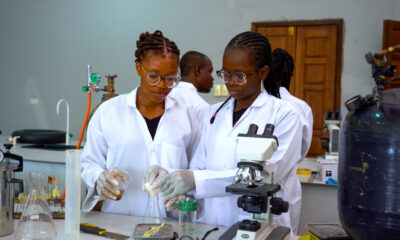Features
See How Paula Marowa is Reviving Zimbambwe’s Leather Sector
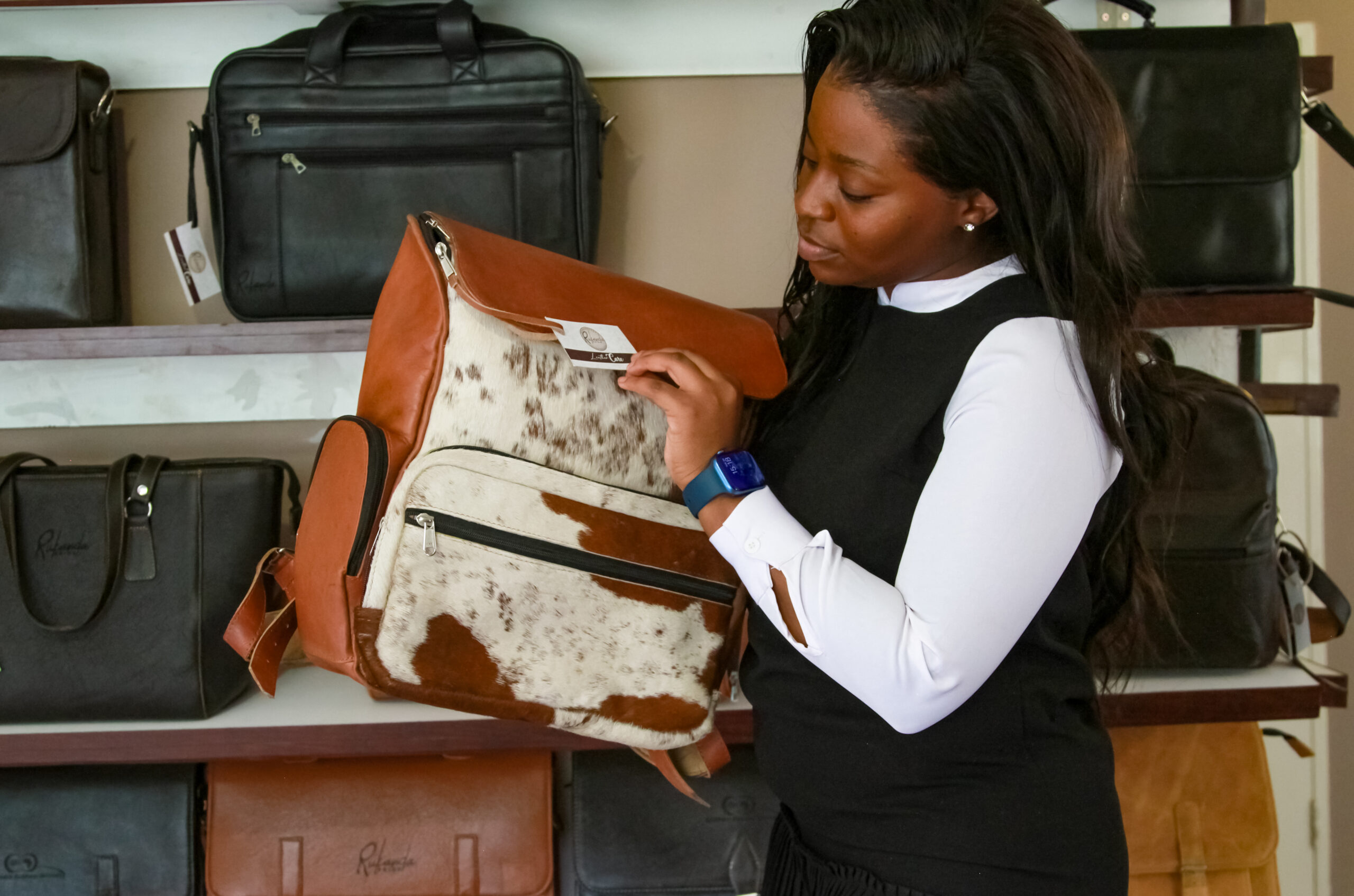
Paula Marowa holding a bag made by Rukanda Pride at her leather shop in Zimbabwe. Photo: Mike Saburi, Bird Story Agency
As shoppers enter Rukanda Pride leather store in Harare’s posh Eastlea suburb, they are immediately enveloped by the captivating aroma of fresh leather. Stepping in further, they are surrounded by meticulously crafted leather products. The presentation of impeccable craftsmanship, together with the earthy, woodsy smell evokes a feeling of elegance and opulence. Patrons are attended personally by assistants well versed in leather craft and who can provide unique insight into each item’s detailing and history.
This high-end experience is a far cry from the early life of the store’s 28-year-old proprietor, Paula Marowa.
Orphaned at 9, Marowa always had to work for a living. She helped an aunt sell products at a flea market until her teenage years and then, as soon as she could, she branched out on her own and started sourcing goods from Mozambique to sell in Zimbabwe for a profit.
Willing to try a lot of business ideas, Marowa first encountered leather through an experienced craftsman who had made a good living from his venture.
“The story of Rukanda Pride started in an unconventional way,” she said. “It was never a childhood passion, but an opportunity-driven business. I started Rukanda in 2018 through intergenerational transferring of skills.”
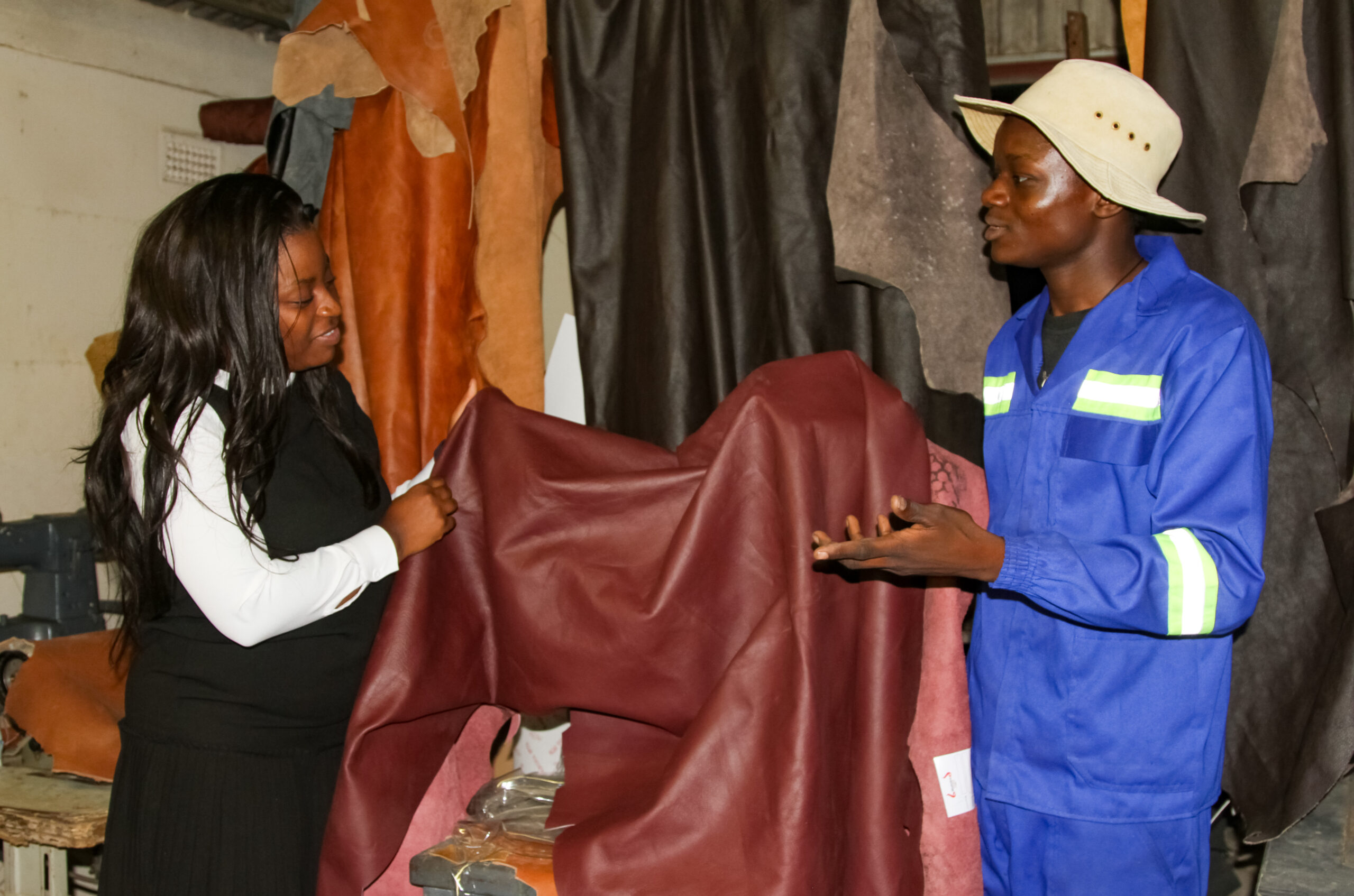
Paula Marowa with an employee at her workshop in Harare, Zimbabwe. Photo: Mike Saburi, Bird Story Agency
That transfer of skills began with the encounter with the craftsman Marowa still refers to as ‘Mr. Sithole‘, making leather products under a tree at his house in the dormitory town of Chitungwiza near the capital Harare. The experience left such an impression that Marowa later returned and convinced him to partner with her. Sithole would handle the manufacturing while she managed sales and other day-to-day business.
“What I would do is I would go to the client and then advertise the product, get a deposit, which would cover the cost of production to Mr Sithole. Then I deliver the product to the client and then get the balance as my profit,” said Marowa.
A lack of capital meant that she had to wait some time until she could develop the next phase of her plan, however.
“When I registered the company I continued with the same way of operation for about two years before opening a store in Harare,” she said.
Today, her business has become a recognized national brand capable of competing with established players in the market and Marowa is among a crop of young entrepreneurs breathing a new lease of life into Zimbabwe’s once-vibrant leather sector.
While Rukanda Pride now employs about eight people, as she noted in a 2023 interview, scaling has been difficult due to a general scarcity in the country of expert leather craftspeople. The people she employed had to learn from scratch and there were many mistakes made.
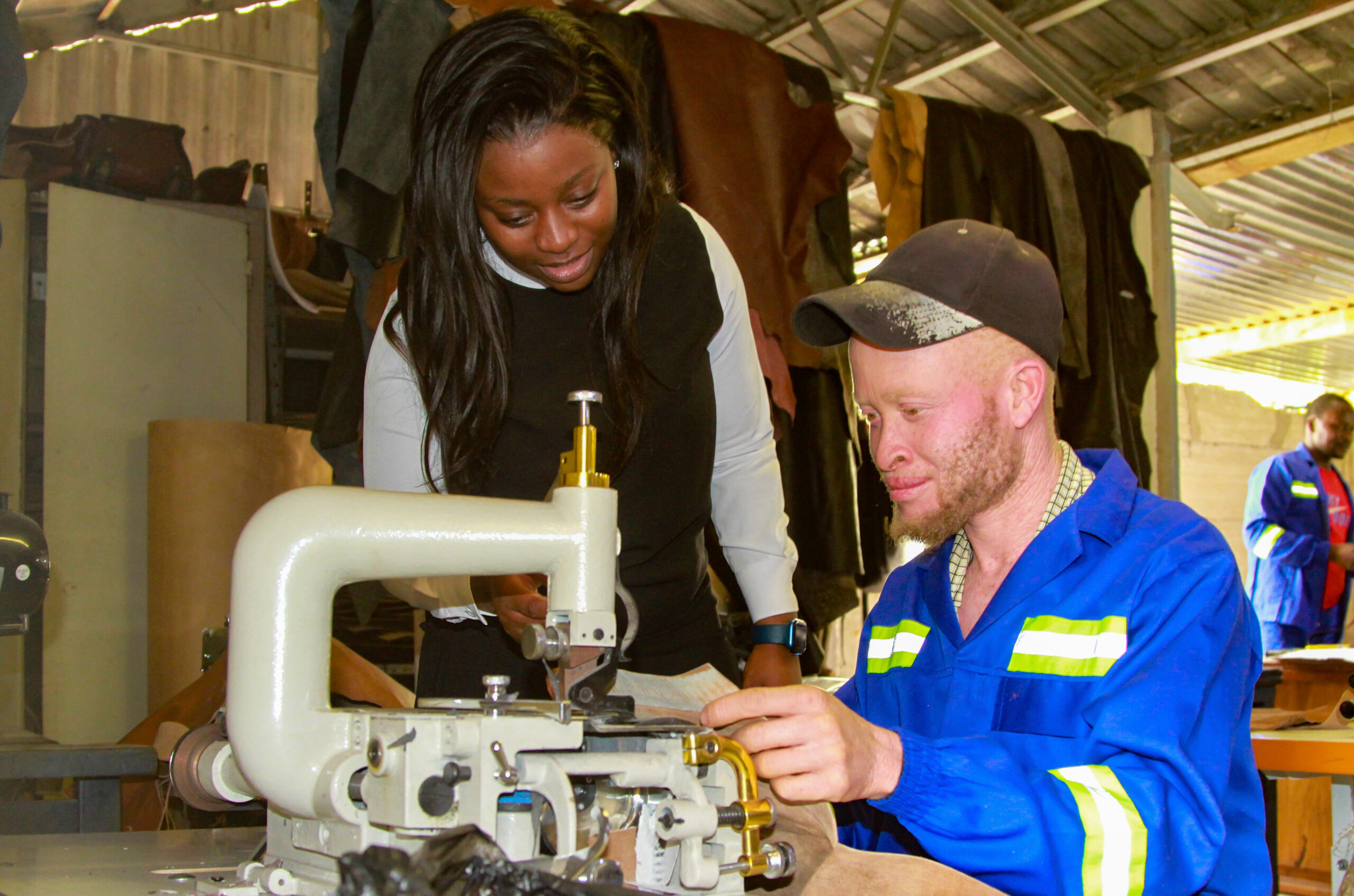
Paula Marowa giving instructions to an employee at her workshop in Harare, Zimbabwe. Photo: Mike Saburi, Bird Story Agency
“I remember we made a bag that was very flappy and we had one of our clients complain on social media. As a business person that almost took me out of business because it was the first time that as a company we had public humiliation,” Marowa shared in the interview.
While the COVID-19 pandemic brought some disruption to the business, production picked up so much afterwards that she was able to purchase some machines. Further growth and customer expectations also prompted her to widen her product portfolio.
“We moved from belts to wallets, from wallets to bags, and then we came up with a travel collection of duffle bags and satchels,” she explained.
Rukanda Pride’s major selling point is being able to customize products to the exact needs of the customer.
“Leather is a lifetime product, something that you can live with forever. So we try to give that experience to our clients, and we always try to make sure that we feel the experience before we give it out to our clients,” said Marowa, who now has an even bigger ambition for the company.
“Our vision is to grow, expand and be innovative enough to deliver remarkable real leather products within the borders of Africa and beyond,” she said.
A defining moment of her journey was being selected for the 2023 Forbes Under 30 Summit Africa, a convention of Africa’s top young entrepreneurs and game-changers.
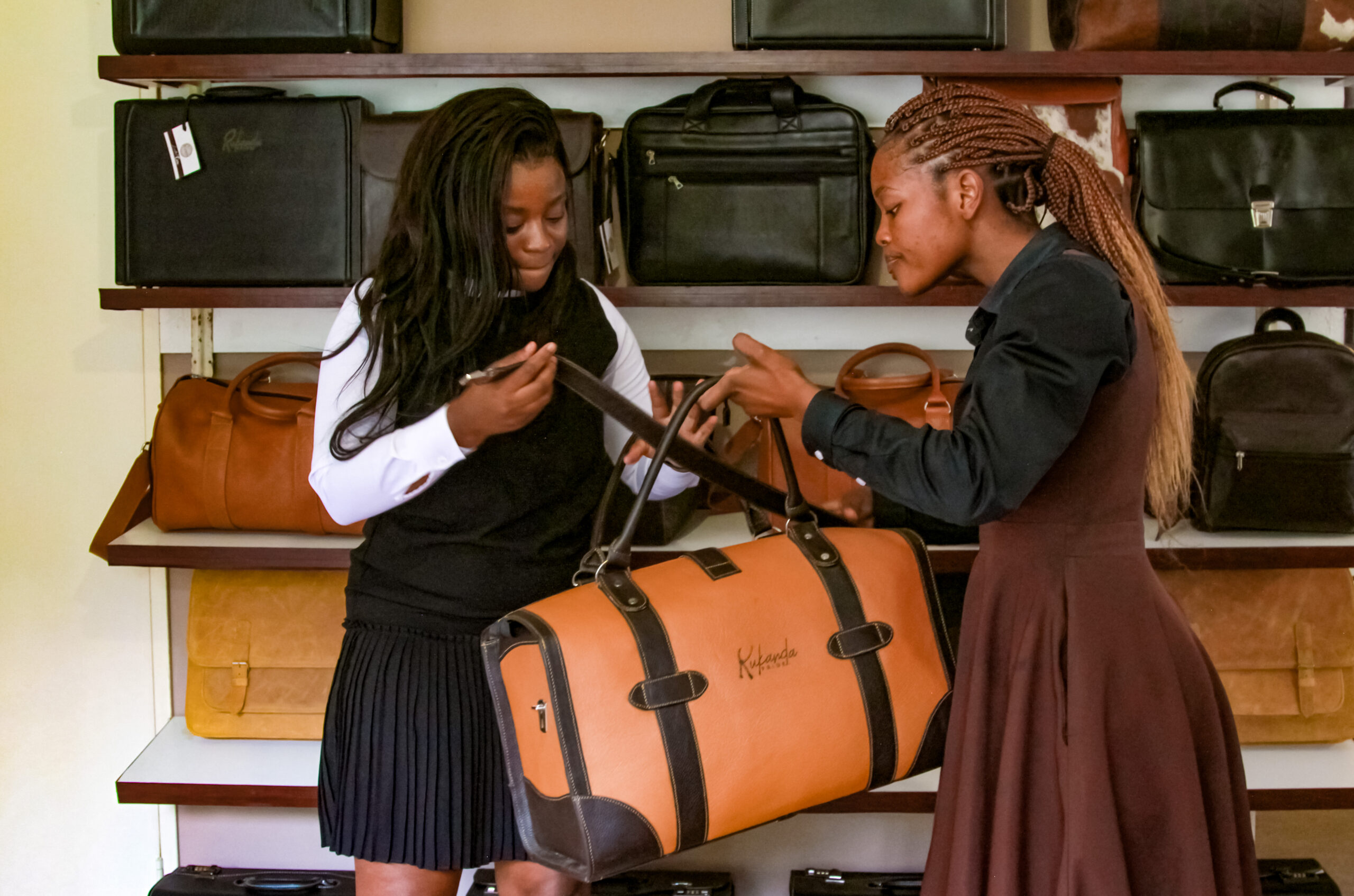
Paula Marowa and a shop attendant look at a bag made by Rukanda Pride at a leather shop in Harare, Zimbabwe. Photo: Mike Saburi, Bird Story Agency
While the local market has been promising, she said the main challenge young entrepreneurs face in Zimbabwe is securing funding.
“I have grown Rukanda Pride to this stage through bootstrapping, we have just been reinvesting the profits into the business so that it continues to grow,” she said.
There is certainly no end to the opportunity. Zimbabwean leather is world-renowned and the country possesses a competitive advantage in the global leather value chain thanks to its wide livestock base.
The country lost its place in the global leather market over the past two decades due to crippling economic challenges which resulted in the closure of major companies that employed thousands of workers. However, the sector is now on the rebound and retrenched leather workers are behind the sector’s new shoots, according to Clement Shoko, Chairman of the Zimbabwe Leather Development Council.
“When you have a skills base as good as what we have in the leather value chain, chances of establishing new factories, new companies, it’s very easy. The only issue is that we need access to finance, once we have got access to finance, life becomes very easy,” said Shoko.
“We have got opportunities that are coming our way. We have got excess stocks in terms of the skins. Zimbabwe is an animal country, very beautiful skins, very big skins, the only challenge is that we need to add value on these,” he said, adding that young entrepreneurs coming into the industry are innovating and breathing a new lease of life into the once-vibrant sector.
The continent produces approximately 210 million square meters of leather annually, which accounts for about 4% of the global production. With some of the largest herds in the world, that percentage has plenty of room to grow. Marowa too.
Story Credit: Mike Saburi for Bird Story Agency


